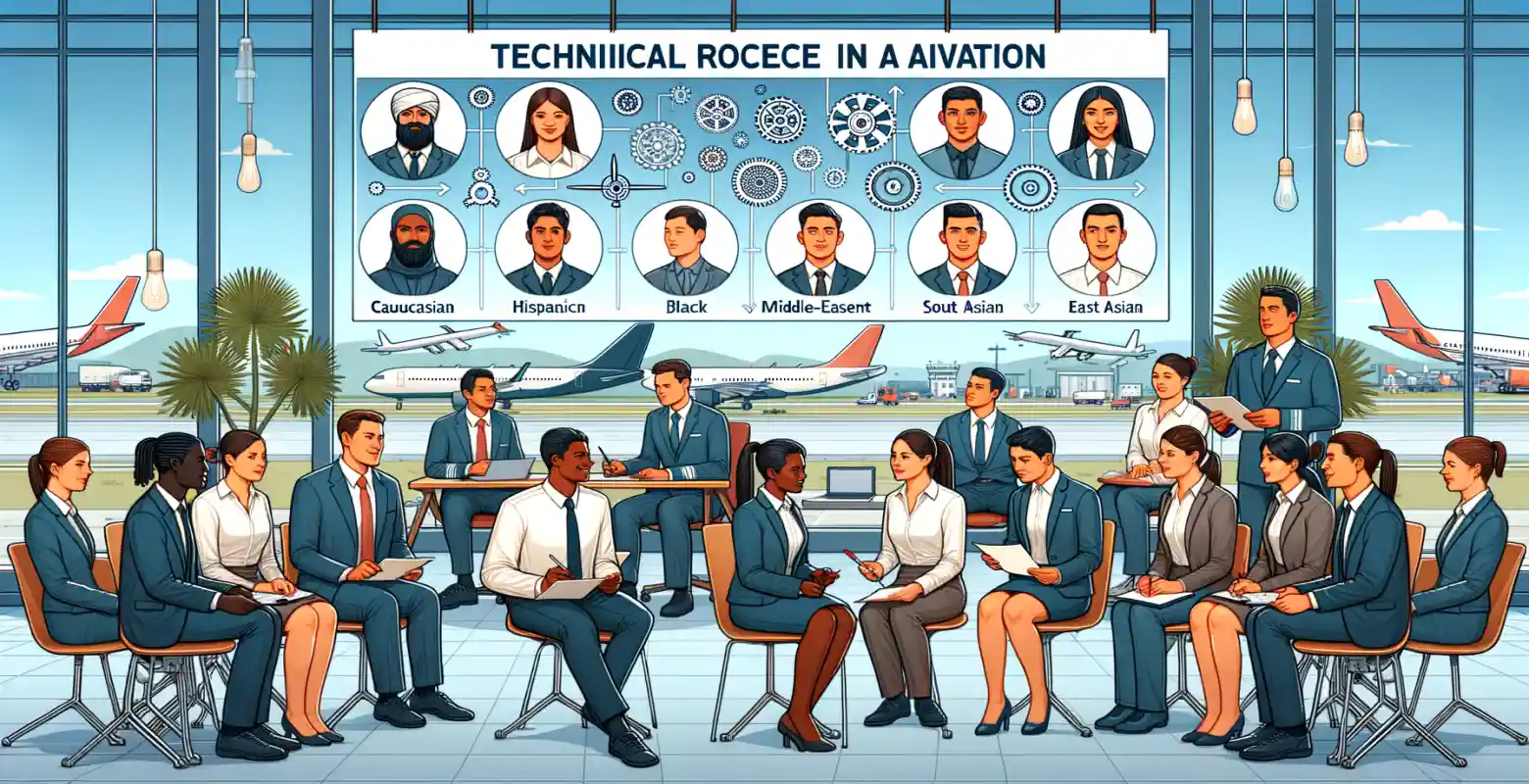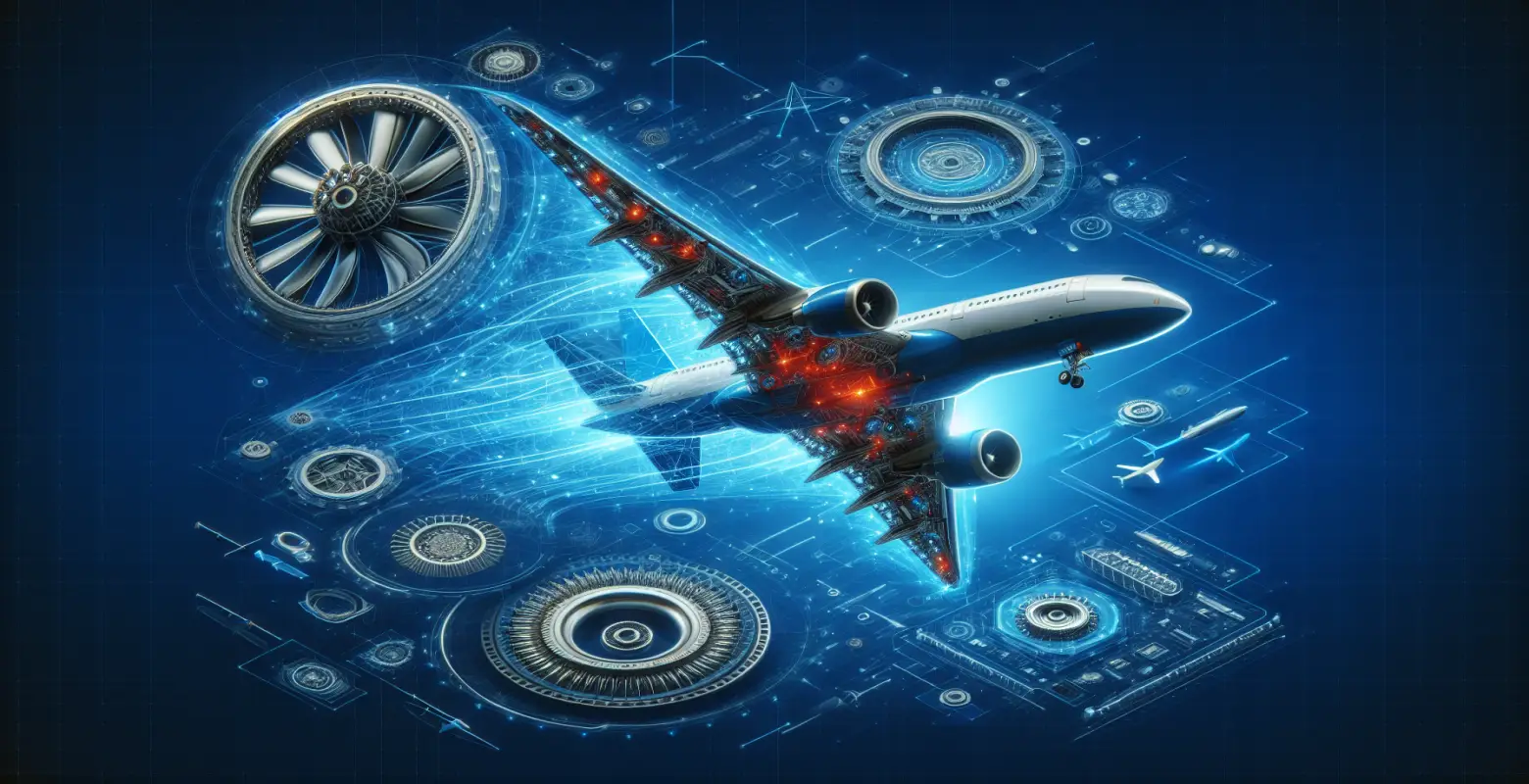What does the recruitment process for technical positions in aviation look like?
Introduction
Recruitment for technical positions in aviation is an extremely important topic in the context of the dynamically developing aviation industry sector. In the era of globalization and rapid technological advancement, the aviation industry plays a key role in transportation, defense, and space exploration. Consequently, the demand for highly qualified specialists in this sector is increasing. In this article, we will take a closer look at the recruitment process for technical positions in aviation, understanding its specifics, and the challenges it entails.
Recruitment Process – From Advertisement to Employment
Recruitment for technical positions in aviation begins with creating a job advertisement that precisely defines the qualifications and experience requirements for candidates. Airlines often seek specialists with engineering education in fields such as mechanics, electronics, aerodynamics, or aviation management. Certificates confirming competencies, such as aircraft maintenance technician licenses (AML) or quality management certificates, are also crucial.
The recruitment process usually involves several stages, including the analysis of application documents, interviews, and practical tests. It is worth noting that the aviation industry is characterized by high safety standards, translating into a rigorous approach to candidate selection. Candidates must demonstrate not only the appropriate technical knowledge but also soft skills such as communication and the ability to work in a team.
Educational and Competency Requirements
For technical positions in aviation, proper education is of paramount importance. Candidates often need to have a diploma from a technical university and specialized courses confirming their skills. In Poland, studies in fields such as aeronautical engineering, mechanical engineering, or mechatronics are popular. Additionally, candidates should possess certificates issued by international aviation organizations such as EASA (European Union Aviation Safety Agency) or FAA (Federal Aviation Administration).
Soft skills also play an important role. The ability to work in a team, analytical skills, and proficiency in technical English are additional assets that can increase employment opportunities. In the aviation industry, where safety and precision are a priority, the ability to make quick decisions and solve problems swiftly is invaluable.
Technological Development and Its Impact on Recruitment
Technology is playing an increasingly significant role in aviation, directly influencing the recruitment process. The introduction of modern air traffic management systems, drone technologies, as well as advancements in artificial intelligence and data analysis, leads companies to seek specialists with IT and digital technology skills. For example, engineers involved in designing navigation systems or data analysts have become indispensable team members in aviation enterprises.
This requires candidates to continuously improve their skills and update their knowledge. Online courses, certifications, and participation in industry conferences are ways to stay up-to-date with the latest trends. Airlines often also organize internships and practical training programs, allowing young engineers to gain experience and immerse themselves in the world of modern aviation technologies.
Challenges and Prospects Related to Recruitment
Recruiting for technical positions in aviation is associated with numerous challenges. One of them is the shortage of qualified personnel, which is felt worldwide. The aviation industry is developing rapidly, and the number of available specialists does not always keep up with demand. As a result, companies must invest in training and professional development programs to attract and retain talents.
However, the aviation job market also offers many prospects. The increasing demand for air travel, the development of space technologies, and increased investments in the defense sector create new job opportunities. For candidates, this means broad career possibilities and the chance to participate in innovative projects.
Summary
Recruiting for technical positions in aviation is a complex process that requires appropriate qualifications, experience, and the ability to adapt to rapidly changing market conditions. The aviation industry offers many career opportunities, but it also sets high demands on candidates. Faced with the growing demand for specialists and dynamic technological advancements, continuous skill improvement and adaptation to new challenges are crucial. For those interested in a career in this field, not only having the right qualifications is essential but also the willingness to continuously learn and develop their competencies.






Number of comments: 0